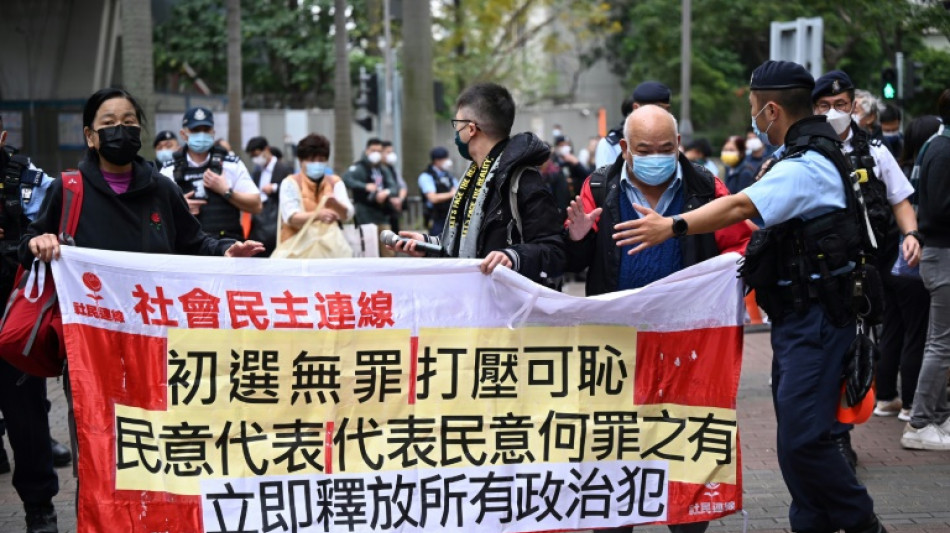
-
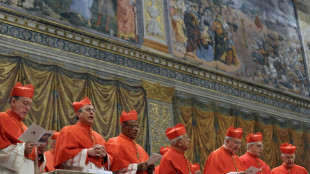 What we know ahead of the conclave
What we know ahead of the conclave
-
Jannik Sinner launches foundation supporting children

-
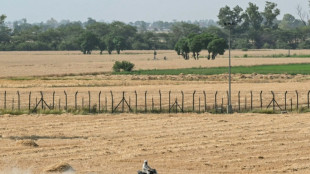 Villagers on India's border with Pakistan fear war
Villagers on India's border with Pakistan fear war
-
Putin announces surprise Ukraine truce for May 8-10
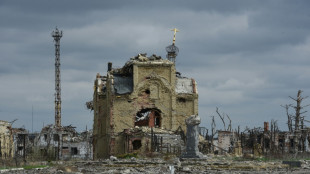
-
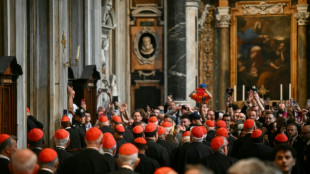 Conclave to elect new pope starts May 7
Conclave to elect new pope starts May 7
-
Stock markets mostly rise amid trade talk hopes
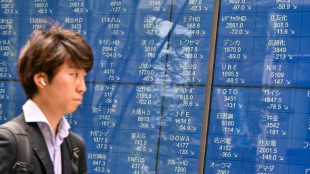
-
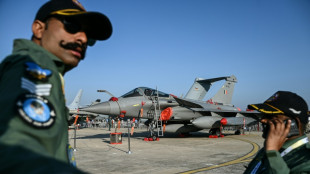 India says signs deal with France for 26 Rafale fighter jets
India says signs deal with France for 26 Rafale fighter jets
-
Trump's deep-sea mining order violates global norms: France
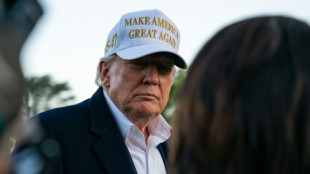
-
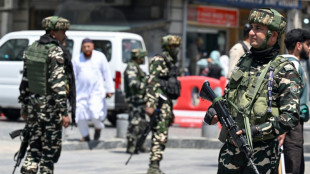 India Kashmir crackdown sparks anger as Pakistan tensions escalate
India Kashmir crackdown sparks anger as Pakistan tensions escalate
-
Russia says claims over annexed Ukraine regions key to peace
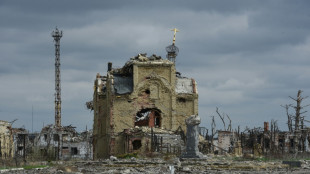
-
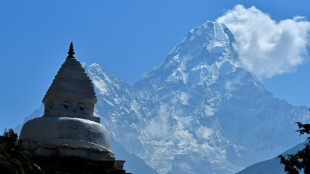 Austrian climber dies on Nepal mountain
Austrian climber dies on Nepal mountain
-
Fires rage 2 days after Iran port blast killed 46

-
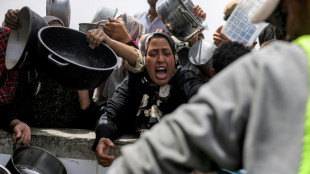 Palestinian official tells ICJ Israel using aid blockage as 'weapon of war'
Palestinian official tells ICJ Israel using aid blockage as 'weapon of war'
-
France arrests 25 in police raids after prison attacks
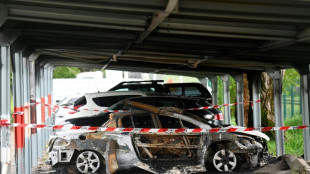
-
 Kim Kardashian's next star turn is in a Paris courtroom
Kim Kardashian's next star turn is in a Paris courtroom
-
Syria group says military chief arrested in UAE
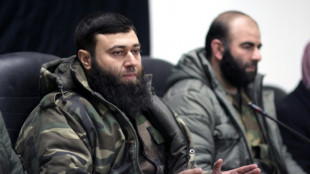
-
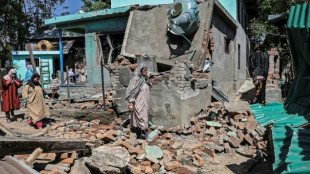 Anger in Indian Kashmir at demolitions and detentions
Anger in Indian Kashmir at demolitions and detentions
-
Italy bank merger wave heats up as Mediobanca eyes Banca Generali
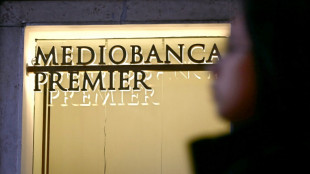
-
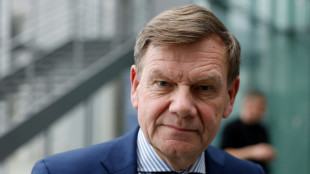 Putin critic Johann Wadephul, Germany's incoming foreign minister
Putin critic Johann Wadephul, Germany's incoming foreign minister
-
Cardinals expected to pick conclave date to elect new pope
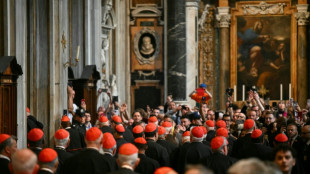
-
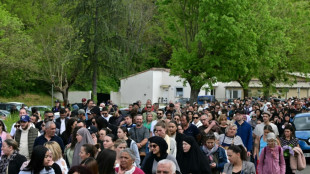 French mosque murder suspect arrested in Italy
French mosque murder suspect arrested in Italy
-
China says on 'right side of history' in trade standoff with US
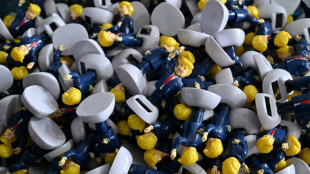
-
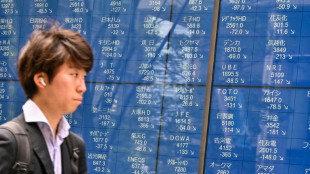 Stock markets mostly rise as investors eye trade talks
Stock markets mostly rise as investors eye trade talks
-
Fires rage 2 days after Iran port blast killed 40
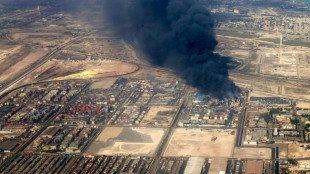
-
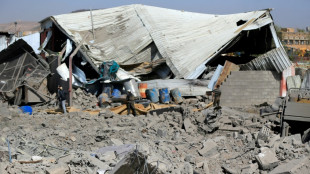 Yemen's Huthi rebel media says 68 killed in US strikes on migrant centre
Yemen's Huthi rebel media says 68 killed in US strikes on migrant centre
-
Man rescued from Mount Fuji twice in one week: reports
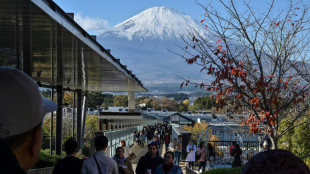
-
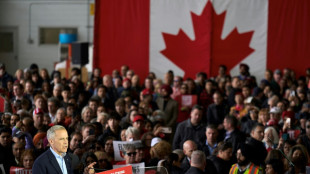 Canada votes for new government to take on Trump
Canada votes for new government to take on Trump
-
Top UN court to open hearings on Israel's aid obligation to Palestinians
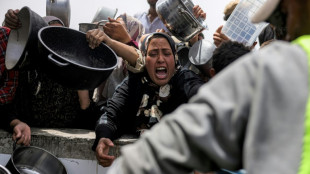
-
 Philippines denies 'irresponsible' Chinese report on disputed reef
Philippines denies 'irresponsible' Chinese report on disputed reef
-
T'Wolves win to push Lakers to brink, Celtics, Knicks and Pacers win

-
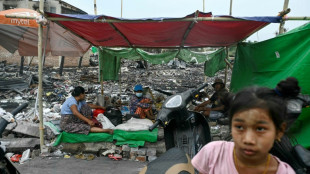 Myanmar marks month of misery since historic quake
Myanmar marks month of misery since historic quake
-
South Korea's SK Telecom begins SIM card replacement after data breach

-
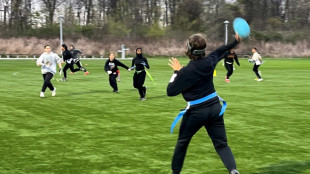 Women's flag football explodes in US as 2028 Olympics beckon
Women's flag football explodes in US as 2028 Olympics beckon
-
'Hunger breaks everything': desperate Gazans scramble for food
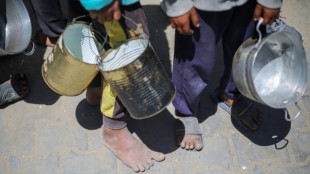
-
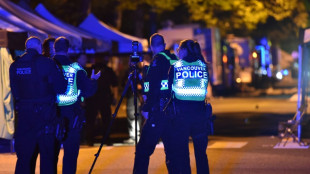 Suspect charged with murder in Canada car attack that killed 11
Suspect charged with murder in Canada car attack that killed 11
-
Lost to history: Myanmar heritage falls victim to quake

-
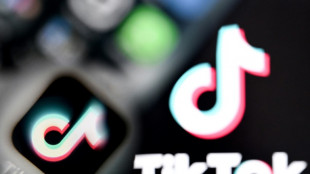 Romania far-right rides TikTok wave in election re-run
Romania far-right rides TikTok wave in election re-run
-
Trial begins in Paris over 2016 gunpoint robbery of Kim Kardashian
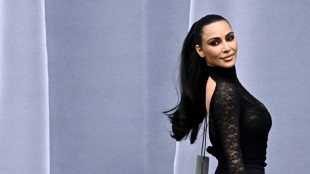
-
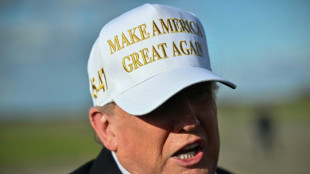 Trump thinks Zelensky ready to give up Crimea to Russia
Trump thinks Zelensky ready to give up Crimea to Russia
-
North Korea confirms troop deployment to Russia's Kursk
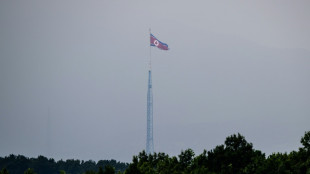
-
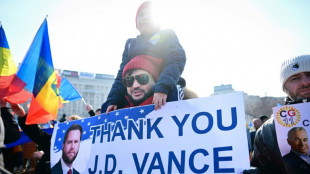 Romania presidential election re-run under Trump shadow
Romania presidential election re-run under Trump shadow
-
Asian markets mixed as investors eye trade talks
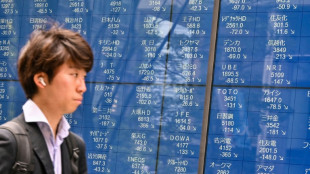
-
 T'Wolves push Lakers to brink of elimination, Celtics and Knicks win
T'Wolves push Lakers to brink of elimination, Celtics and Knicks win
-
Suspect charged with murder in Canada car attack that left 11 dead
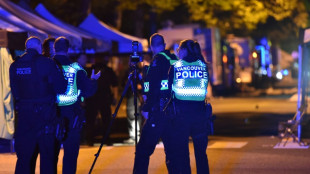
-
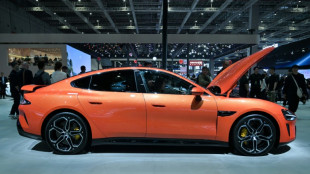 Smart driving new front in China car wars despite fatal crash
Smart driving new front in China car wars despite fatal crash
-
Cardinals set to pick conclave date to elect new pope
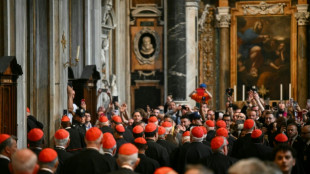
-
 Miami's unbeaten MLS run ends after Dallas comeback
Miami's unbeaten MLS run ends after Dallas comeback
-
After 100 days in office, Trump voters still back US president
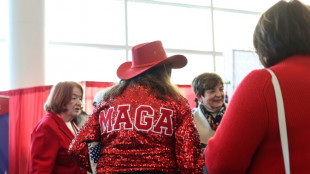
-
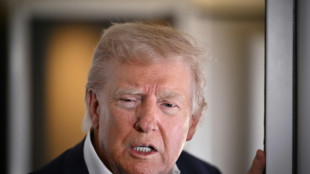 US anti-disinformation guardrails fall in Trump's first 100 days
US anti-disinformation guardrails fall in Trump's first 100 days
-
Dick Barnett, two-time NBA champ with Knicks, dies at 88
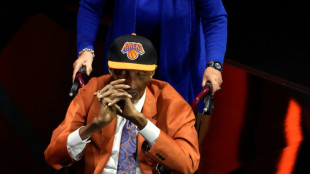

Hong Kong's largest national security trial opens
Hong Kong's largest national security trial opened Monday with dozens of pro-democracy figures accused of trying to topple the government in a case critics say reflects the criminalisation of dissent in the Chinese territory.
The 47 defendants, who include some of the city's most prominent activists, face up to life in prison if convicted.
Sixteen of them have pleaded not guilty to charges of "conspiracy to commit subversion" related to their involvement in an unofficial primary election organised ahead of legislature polls.
The other 31 have pleaded guilty and will be sentenced after the trial.
A rare, small protest erupted before the court convened, with supporters carrying a banner that read "Crackdown is shameless" and "Immediately release all political prisoners".
Another protester was seen raising a fist in solidarity as a large number of police stood nearby.
More than 100 people had queued outside the court, some overnight, in the hopes of seeing the trial begin.
The defendants say they are being persecuted for routine politics, while rights groups and observers say the trial illustrates how the legal system is being used to crush what remains of the opposition.
Most of the group have already spent nearly two years behind bars.
They now face proceedings expected to last more than four months, overseen by judges handpicked by the government.
Theirs is the largest case to date under the sweeping national security law that China imposed on Hong Kong after democracy protests in 2019.
Beijing says the law was needed to curb the unrest, which brought tear gas and police brawls onto the streets of the Asian financial hub.
Wielded against students, unionists and journalists, the law has transformed the once-outspoken city to more closely resemble the authoritarian mainland.
"The trial shows the path Hong Kong is now taking," 21-year-old journalism student Robin told AFP from outside the court where he had been waiting for over 14 hours.
- 'Retaliation' -
Those on trial represent a cross-section of Hong Kong's opposition -- from prominent legal scholar Benny Tai, to former lawmakers such as Claudia Mo, Au Nok-hin and Leung Kwok-hung, to activists such as Joshua Wong and Lester Shum.
The group was jointly charged in March 2021 after organising an unofficial primary a year earlier to select opposition candidates.
Their stated aim was to win a majority in the city's partially elected legislature, which would allow the bloc to push the protesters' demands and potentially force the resignation of Hong Kong's leader.
According to authorities, their goals were tantamount to trying to bring down the government.
Defying official warnings, more than 610,000 people -- about one-seventh of the city's voting population -- cast ballots.
Hong Kong authorities later scrapped the official election, and Beijing brought in a new political system that strictly vetted who could stand for office.
"This is a retaliation against all the Hong Kongers who supported the pro-democratic camp," Eric Lai, a fellow of Georgetown University's Center for Asian Law, told AFP of the trial.
"Beijing will go all out -- even weaponising the laws and court -- to make sure democratic politics in Hong Kong cannot go beyond the lines it drew."
- Test for the judiciary -
Analysts are closely watching the case as a key test of Hong Kong's judicial independence and rule of law.
The trial is being heard in an open court but without a jury, a departure from the city's common law tradition.
"It is as if the national security law is now the new constitution for Hong Kong and the judges are playing their role in making sure that happens," said Dennis Kwok, Hong Kong's former legal sector legislator.
Weeks before the hearings began, Hong Kong's Chief Justice Andrew Cheung defended the courts against accusations of politicisation.
Veteran lawyer Ronny Tong said he was confident in the city's "very independent judiciary".
"If people were to commit a crime, they will be punished -- that has nothing to do with the political inclinations," he told AFP.
X.Karnes--AMWN